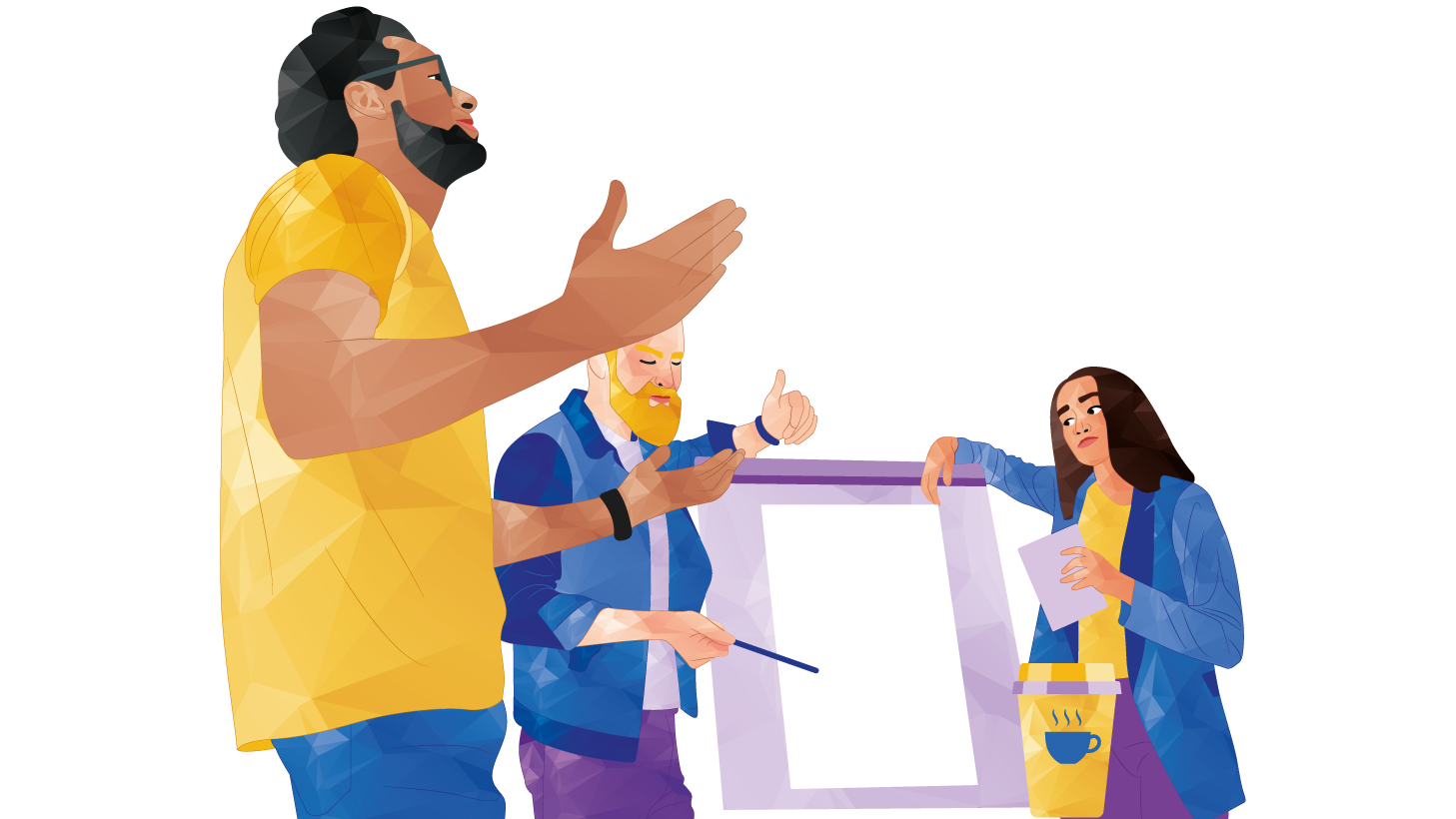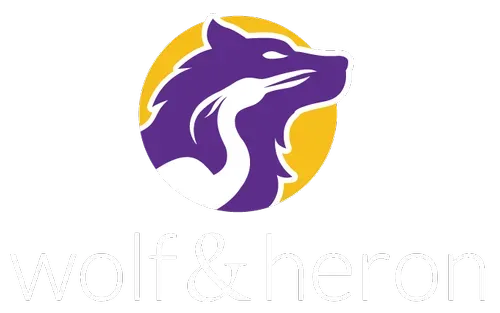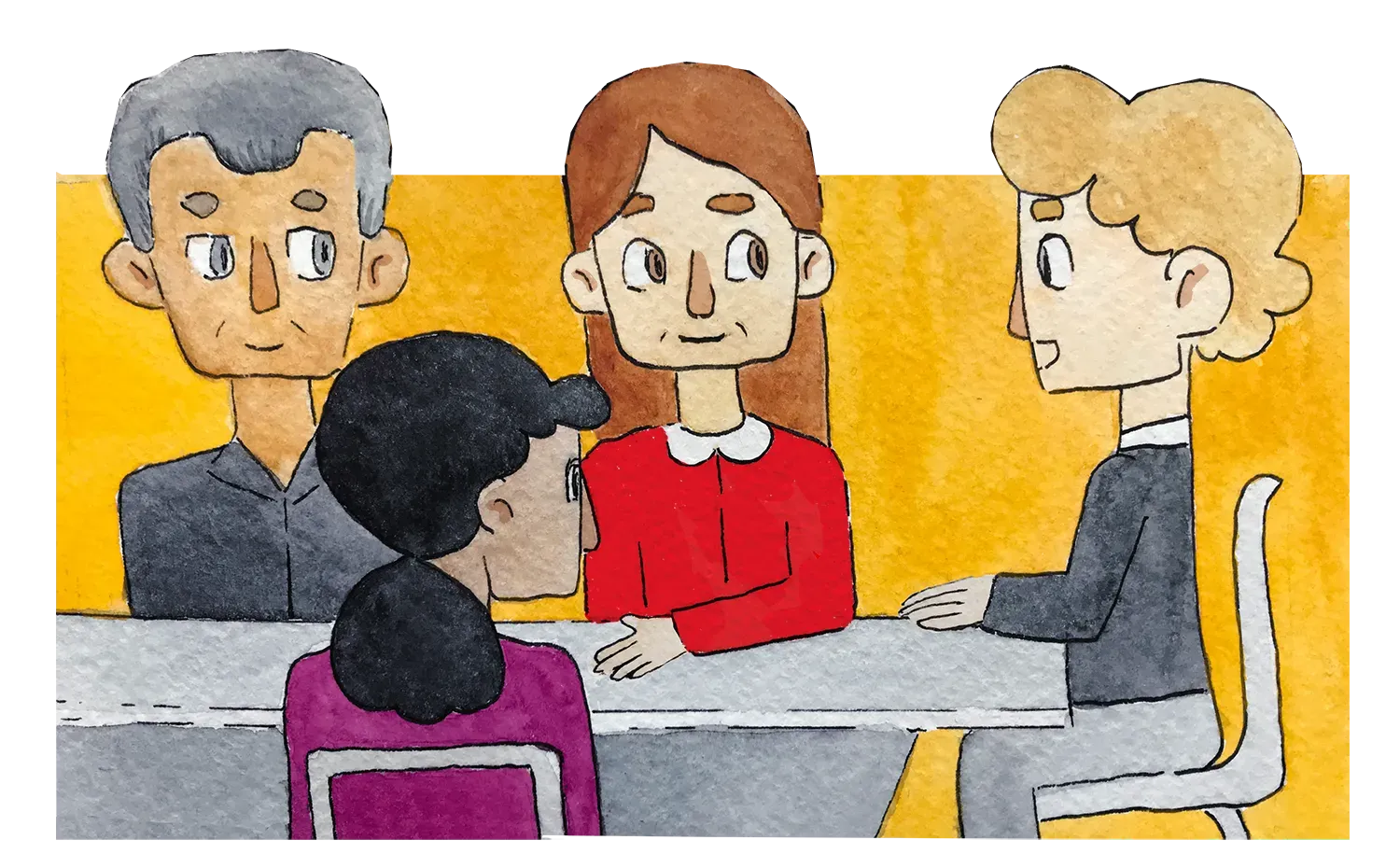Insights
Our unfiltered field perspective.

By Stephanie Judd
•
February 16, 2026
Last week, Kara coached Carl, a leader who was getting ready for a working group meeting. It was the group’s first opportunity to meet after their kickoff, and a critical moment to move the group from idea to action. Carl was concerned that people would be reluctant to contribute and then he’d be left alone to do the work without the crucial input from his stakeholders. What Carl needed was some space to get clear on the desired outcomes of his meeting, think through how he was going to run it, and make sure everyone was set up to contribute meaningfully. By the end of the session, Carl felt ready. You can’t prepare to the same degree for all your meetings. Sometimes all you can do is make sure you have a Zoom link attached to the calendar invite. But for high-stakes moments, the discussions that truly matter and require input from others, you need to go further and approach them strategically. That is one of the clearest ways you demonstrate leadership.

By Stephanie Judd
•
February 3, 2026
One of the most frustrating things Stephanie and Kara experience is facing a meeting on their calendar with a vague title and no agenda. Or (let’s be honest, it’s not much better) the laundry list of topics masquerading as an agenda. When looking at these meetings, Stephanie and Kara don’t know what’s expected of them, how to prepare, nor what the point of the meeting is at all. But… although we’re all victims of this workplace crime… we’re also the perpetrators. Just last week Kara titled a meeting “Storytelling Kickoff” that didn’t have an agenda. Stephanie created a calendar invite titled “Call with Lynette.” It too, had no agenda. We were both invited to a blank “Connect.” Stephanie even registered for a webinar months ahead of time, but when the day came, the calendar invitation title was “Webinar” with no description or agenda, so of course she didn’t attend.

January 19, 2026
Earlier this month, we talked about why data can be difficult to communicate . Data often lacks meaning, is hard to process, and rarely engages people emotionally. Fortunately, there’s a way to address all three challenges at once. Storytelling is one of the most effective ways to make your data more compelling. Here’s why.

January 5, 2026
Recently, a product manager came to Kara looking for coaching on her storytelling skills and presentation delivery. When Kara asked what was behind the need, the client shared that she often has high-stakes moments with leadership where she needs to secure critical resources, like headcount. These conversations have serious implications for her team and her product’s success. She knows her data inside and out. The decision she wants to recommend to her executives feels clear to her. She’s prepared… but when she walks into the meeting, her data doesn’t land, and her arguments fall flat. She knows this because leadership asks questions like: What does this number mean? How do you know? They aren’t seeing the context, the “so what,” or how her data fits into the bigger picture of the business.

December 15, 2025
Stephanie and Kara both learned early in our professional lives that follow-through matters. As students at Michigan Ross School of Business, it was drilled into us: after an interview, send a thoughtful thank-you note that references the conversation. It was presented as a way to stand out and be polite… a nice finishing touch to remember you by. But although a thank you is polite, it doesn’t build momentum.

December 1, 2025
Early in our Wolf & Heron days, Stephanie facilitated our Influential Storytelling workshop for a major new client. It was a high-stakes moment: 100+ people in the room, a huge win for us, and her first time delivering the workshop solo. She opened with a story she had polished, rehearsed, and delivered successfully many times before.

November 17, 2025
Carissa came to Stephanie frustrated. She had a 15-minute slot with her executive leadership team, and she wanted to understand why her user-research findings weren’t influencing leadership action. She had spent months gathering insights, synthesizing trends, and surfacing recommendations, yet every time she presented them, leaders nodded politely and moved on. There was no change or follow through.

June 30, 2025
Ah, the annual Sales Kick-Off (SKO) a high-energy, high-stakes event where the entire sales team gathers to be motivated, inspired, and equipped for the year ahead. Or, at least, that's the intention. Too often, SKOs devolve into an endless parade of slide decks, a blur of talking heads, and a slow descent into

May 19, 2025
People dont make decisions based on logic alone. They need to connect emotionally with your message and use logic to justify it later. Thats where storytelling comes in. A good story doesn't just inform; it makes people feel. And when they feel, they remember. More importantly, they act. Read on to unde

April 7, 2025
As speakers and speaker coaches, we spend a lot of time crafting talks both for ourselves and with our clients. It's an obvious exploration, therefore, for us to look into how we can leverage AI to craft these talks more quickly (and ideally, effectively). Recently, Stephanie started giving a talk entitled Story.

March 17, 2025
Executive coaching is a soft skill. Yes, there are some technical frameworks you can be trained on, but at the end of the day, a good executive coach is proficient in what are generally considered soft skills: conversations, intuition, active listening, appreciative inquiry, etc. Soft skills are those less tangible














